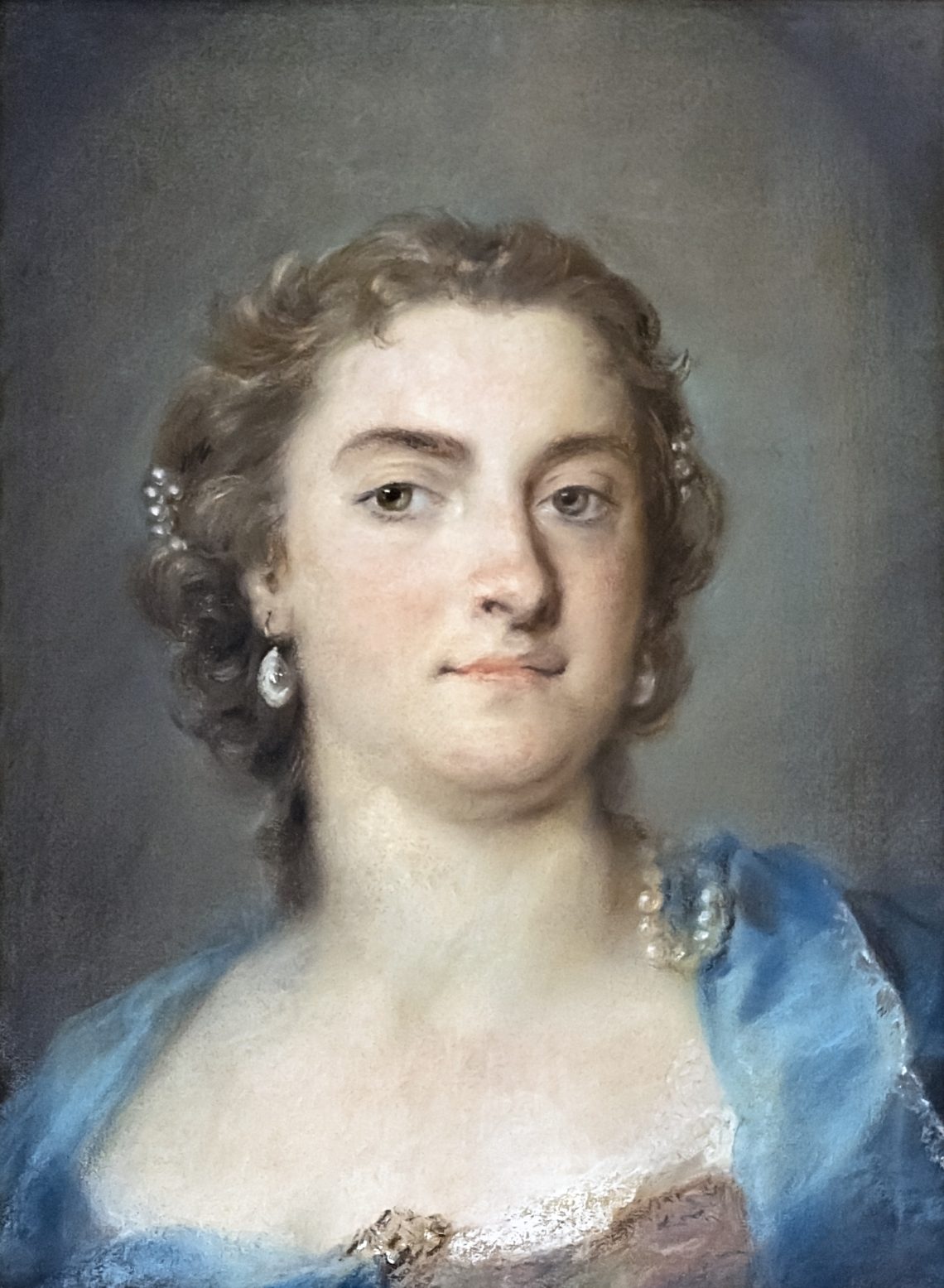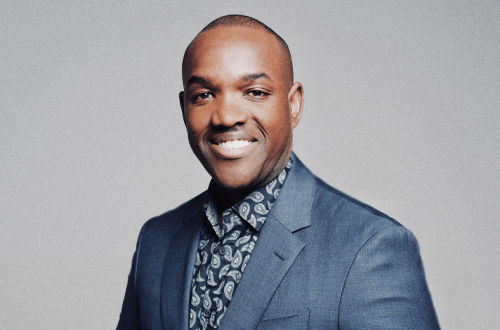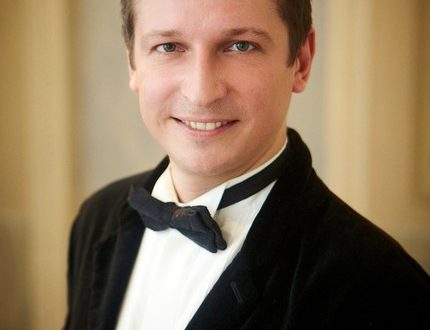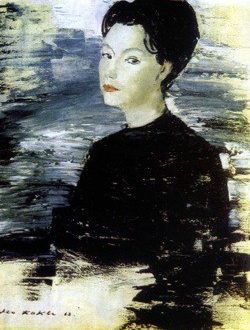
Faustina Bordoni |
Faustina Bordoni
Bordoni-Hasse’s voice was incredibly fluid. No one but her could repeat the same sound with such speed, and on the other hand, she knew how to hold a note indefinitely.
“Hasse-Bordoni entered the history of the opera house as one of the largest representatives of the bel canto vocal school,” writes S.M. Grishchenko. – The singer’s voice was strong and flexible, exceptional in lightness and mobility; her singing was distinguished by the enchanting beauty of sound, the coloristic diversity of the timbre palette, the extraordinary expressiveness of phrasing and clarity of diction, dramatic expression in a slow, melodious cantilena and phenomenal virtuosity in the performance of trills, fioritura, mordents, ascending and descending passages … a wealth of dynamic shades (from rich fortissimo to most tender pianissimo). Hasse-Bordoni had a subtle sense of style, a bright artistic talent, excellent stage performance, and a rare charm.”
Faustina Bordoni was born in 1695 (according to other sources, in 1693 or 1700) in Venice. She came from a noble Venetian family, was brought up in the aristocratic house of I. Renier-Lombria. Here Faustina met Benedetto Marcello and became his student. The girl studied singing in Venice, at the Pieta Conservatory, with Francesco Gasparini. Then she improved with the famous castrato singer Antonio Bernacchi.
Bordoni first appeared on the opera stage in 1716 at the Venetian theater “San Giovanni Crisostomo” in the premiere of the opera “Ariodante” by C.-F. Pollarolo. Then, on the same stage, she performed the main roles at the premieres of the operas “Eumeke” by Albinoni and “Alexander Sever” by Lotti. Already the first performances of the young singer were a great success. Bordoni quickly became famous, becoming one of the most famous Italian singers. Enthusiastic Venetians gave her the nickname New Sirena.
It is interesting that in 1719 the first creative meeting between the singer and Cuzzoni took place in Venice. Who would have thought that in less than ten years they would become participants in the famous internecine war in London.
In the years 1718-1723 Bordoni tours throughout Italy. She performs, in particular, in Venice, Florence, Milan (Ducale Theatre), Bologna, Naples. In 1723 the singer visited Munich, and in 1724/25 she sang in Vienna, Venice and Parma. Star fees are fabulous – up to 15 thousand guilders a year! After all, Bordoni not only sings well, but is also beautiful and aristocratic.
One can understand how difficult it was for Handel to “seduce” such a star. The famous composer came to Vienna, to the court of Emperor Charles VI, especially for Bordoni. His “old” prima donna at the “Kingstier” Cuzzoni had a baby, you need to play it safe. The composer managed to conclude a contract with Bordoni, offering her 500 pounds more than Cuzzoni.
And now the London newspapers are full of rumors about the new prima donna. In 1726, the singer sang for the first time on the stage of the Royal Theater in Handel’s new opera Alexander.
The famous writer Romain Rolland later wrote:
“The London Opera has been given over to castrati and prima donnas, and to the whims of their protectors. In 1726, the most famous Italian singer of that time, the famous Faustina, arrived. Since then, London performances turned into competitions of larynxes of Faustina and Cuzzoni, competing in vocalizations – competitions accompanied by the cries of their warring supporters. Handel had to write his “Alessandro” (May 5, 1726) for the sake of an artistic duel between these two stars of the troupe, who sang the roles of Alexander’s two mistresses. Despite all this, Handel’s dramatic talent showed itself in several fine scenes in Admeto (January 31, 1727), the grandeur of which seemed to captivate the audience. But the rivalry of the artists not only did not calm down from this, but became even more frantic. Each party kept on the payroll pamphleteers who issued vile lampoons on their opponents. Cuzzoni and Faustina reached such a degree of rage that on June 6, 1727, they grabbed each other’s hair on stage and fought to the roar of the whole hall in the presence of the Princess of Wales.
Since then, everything has gone upside down. Handel tried to pick up the reins, but, as his friend Arbuthnot said, “the devil broke free”: it was impossible to put him on the chain again. The case was lost, despite three new works by Handel, in which the lightning of his genius shines … A small arrow fired by John Gay and Pepush, namely: “Beggars Opera” (“Beggars’ Opera”), completed the defeat of the London Opera Academy … “
Bordoni performed in London for three years, taking part in the first productions of Handel’s operas Admet, King of Thessaly (1727), Richard I, King of England (1727), Cyrus, King of Persia (1728), Ptolemy, king of Egypt” (1728). The singer also sang in Astyanax by J.-B. Bononcini in 1727.
After leaving London in 1728, Bordoni toured Paris and other French cities. In the same year, she participated in the first production of Albinoni’s Fortitude in Trial at Milan’s Ducal Theatre. In the 1728/29 season, the artist sang in Venice, and in 1729 she performed in Parma and Munich. After a tour at the Turin theater “Reggio” in 1730, Bordoni returned to Venice. Here, in 1730, she met the German composer Johann Adolf Hasse, who worked as a bandmaster in Venice.
Hasse is one of the most famous composers of that time. This is what Romain Rolland gave to the German composer: “Hasse surpassed Porpora in the charm of his melos, in which only Mozart equaled him, and in his gift of owning an orchestra, manifested in his rich instrumental accompaniment, no less melodic than the singing itself. … “
In 1730, the singer and composer were united by marriage. From that time on, Faustina mainly performed the main roles in her husband’s operas.
“A young couple in 1731 leaves for Dresden, to the court of the Elector of Saxony Augustus II the Strong,” writes E. Tsodokov. – The German period of the life and work of the famous prima donna begins. A successful husband, who has mastered the art of delighting the public’s ears, writes opera after opera (56 in total), the wife sings in them. This “enterprise” brings a huge income (6000 thalers a year to each). In the years 1734-1763, during the reign of Augustus III (son of Augustus the Strong), Hasse was the permanent conductor of the Italian Opera in Dresden …
Faustina’s skill continued to arouse admiration. In 1742, Frederick the Great admired her.
The performing skills of the singer were appreciated by the great Johann Sebastian Bach, with whom the couple had a friendship. Here is what he writes in his book about the composer S.A. Morozov:
“Bach also maintained friendly relations with the Dresden musical luminary, the author of operas, Johann Adolf Hasse …
A free and independent, secularly courteous artist, Hasse retained little German in himself even in appearance. A somewhat upturned nose under a bulging forehead, a lively southern facial expression, sensual lips, a full chin. Possessing remarkable talent, extensive knowledge of musical literature, he, of course, was glad to suddenly find in a German organist, bandmaster and composer from the provincial Leipzig, after all, an interlocutor who knows the work of Italian and French music composers perfectly.
Hasse’s wife, the Venetian singer Faustina, nee Bordoni, graced the opera. She was in her thirties. Excellent vocal education, outstanding artistic abilities, bright external data and grace, brought up on stage, quickly put her forward in operatic art. At one time she happened to participate in the triumph of Handel’s opera music, now she met Bach. The only artist who knew two of the greatest creators of German music intimately.
It is reliably known that on September 13, 1731, Bach, apparently with Friedemann, listened to the premiere of Hasse’s opera Cleophida in the hall of the Dresden Royal Opera. Friedemann, presumably, took the “Dresden songs” with greater curiosity. But Father Bach also appreciated the fashionable Italian music, especially Faustina in the title role was good. Well, they know the deal, those Hasses. And a good school. And the orchestra is good. Bravo!
… Meeting in Dresden with the Hasse spouses, Bach and Anna Magdalena showed them hospitality in Leipzig. On a Sunday or a holiday, the guests of the capital could not help but listen to another Bach cantata in one of the main churches. They may have been to the concerts of the College of Music and heard there secular compositions performed by Bach with students.
And in the living room of the cantor’s apartment, during the days of the arrival of the Dresden artists, music sounded. Faustina Hasse came to noble houses richly dressed, bare-shouldered, with a fashionable high hairdo, which somewhat weighed down her beautiful face. In the cantor’s apartment, she appeared dressed more modestly – in her heart she felt the difficulty of the fate of Anna Magdalena, who interrupted her artistic career for the sake of the duty of her wife and mother.
In the cantor’s apartment, a professional actress, an opera prima donna, may have performed soprano arias from Bach’s cantatas or Passions. Italian and French harpsichord music sounded during these hours.
When Reich came, Bach’s pieces with solo parts for wind instruments also sounded.
The maid serves dinner. Everyone sits down at the table – and eminent guests, and Leipzig friends, and household members, and the master’s students, if they were called today to play music.
With the morning stagecoach, the artistic couple will depart for Dresden … “
As the leading soloist of the Dresden Court Opera, Faustina also continued to perform in Italy, Germany, and France. At that time there was a special etiquette. The prima donna had the right to have her train on stage carry one page, and if she played the role of a princess, two. The pages followed at her heels. She occupied a place of honor to the right of the other participants in the performance, because, as a rule, she was the most noble person in the play. When Faustina Hasse in 1748 sang Dirka, who later turns out to be a princess, in Demofont, she demanded a higher place for herself than Princess Creusa, a real aristocrat. The author himself, the composer Metastasio, had to intervene to force Faustina to yield.
In 1751, the singer, being in the full bloom of her creative powers, left the stage, devoting herself mainly to raising five children. Then the Hasse family was visited by one of the largest music historians of that time, composer and organist C. Burney. He wrote in particular:
“After dinner with His Excellency Monsignor Visconti, his secretary again took me to Signor Gasse in Landstrasse, the most charming of all the suburbs of Vienna … We found the whole family at home, and our visit was truly fun and lively. Signora Faustina is very talkative and is still inquisitive about everything that happens in the world. She still quite retained for seventy-two years the remnants of the beauty for which she was so famous in her youth, but not her beautiful voice!
I asked her to sing. “Ah non posso! Ho perduto tutte le mie facolta!” (“Alas, I can’t! I have lost all my gift”), she said.
… Faustina, who is a living chronicle of musical history, told me many stories about the performers of her time; she talked a lot about Handel’s magnificent style of playing the harpsichord and organ when she was in England, and said that she remembered Farinelli’s arrival in Venice in 1728, the delight and amazement with which he was then listened to.
All contemporaries unanimously noted the irresistible impression that Faustina made. The art of the singer was admired by V.-A. Mozart, A. Zeno, I.-I. Fuchs, J.-B. Mancini and other contemporaries of the singer. Composer I.-I. Quantz noted: “Faustina had a mezzo-soprano less pure than soulful. Then the range of her voice extended only from a small octave h to a two-quarter g, but subsequently she expanded it downwards. She possessed what the Italians call un canto granito; her performance was clear and brilliant. She had a movable tongue that allowed her to pronounce words quickly and distinctly, and a well-developed throat for passages with such a beautiful and fast trill that she could sing without the slightest preparation, when she pleased. Whether the passages are smooth or jumpy, or consist of repetitions of the same sound, they were as easy for her to play as for any instrument. She was no doubt the first to introduce, and with success, the rapid repetition of the same sound. She sang the Adagio with great feeling and expressiveness, but not always so successfully if the listener was to be plunged into deep sadness by means of drawling, glissando or syncopated notes and tempo rubato. She had a truly happy memory for arbitrary changes and embellishments, as well as a clarity and quickness of judgment, which allowed her to give the full force and expression to words. In stage acting, she was very lucky; and since she perfectly controlled the flexible muscles and various expressions that make up facial expressions, she played with equal success the roles of heroines violent, loving and tender; in a word, she was born to sing and play.
After the death of August III in 1764, the couple settled in Vienna, and in 1775 they left for Venice. Here the singer died on November 4, 1781.





